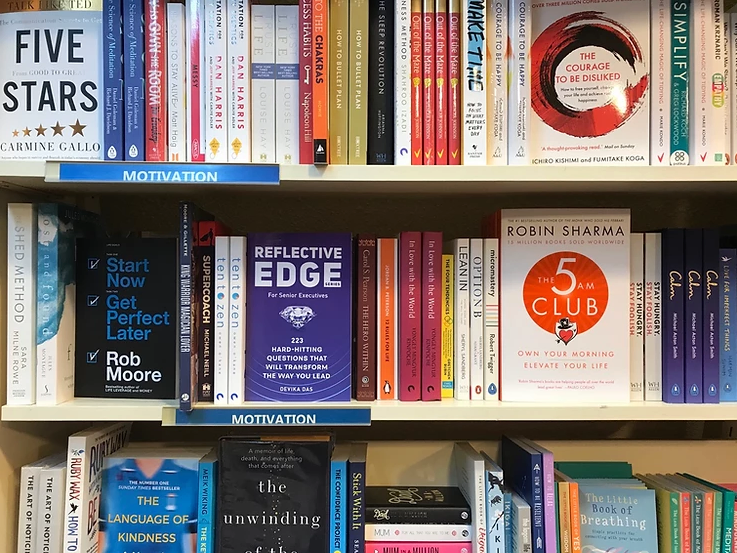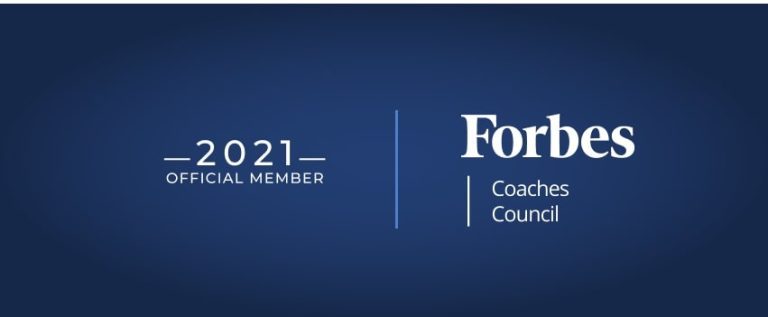
Improve Your Executive Presence as a Reflective Leader

I am an executive coach providing coaching on Executive Presence in Hong Kong. Hong Kong
has a gamut of executives coming from different places around the world to work in finance, law firms, and other regional corporates. Many of them despite having great education lack the executive presence to move up ranks in a global company in Hong Kong. I coach this second-generation leaders-to-be on how to have an executive presence that evolves as their role grows and their career evolves.
The following article is about how and why being a reflective leader can improve presence. The importance of journaling to be self-aware and self reflective.
Pride and dignity are important feelings. What brings you both pride and dignity in your profession?
The higher you are in the organization, the more quickly you will transition through change. This is because you have the vantage point of seeing the destination clearly. How do you communicate this change to your subordinates in order to ease the transition for them?
Parrhesia is the ability to speak the truth. Do you have the courage to speak truth to yourself?
These are some of the journaling questions from my upcoming book series-
REFLECTIVE EDGE
223 hard-hitting questions that will change the way you lead.
If you were to write a list of steps you could take to become a more effective and influential leader, which areas would you choose to focus on? Communication? Motivation? What about self-awareness? Would introspection be somewhere on your list?
Research shows that leaders who are self-aware can increase their teams’ chances of success by nearly 50%. How? By having an awareness of who you are, what has shaped you and how you respond to the vicissitudes of business and people issues, you can tailor your interactions for maximum effect and influence.
The competitive advantage that comes from understanding your own thoughts, feelings and behavior patterns is enormous. Not only does it increase self-acceptance, but it also increases your acceptance of those around you. The more you know and accept yourself, the more open-minded and inclusive you can become. You gain awareness of how you are perceived by others, and you can use this to evolve as you grow in your role.
I have coached many C-suite executives over the years, and when it comes to personal development, I find journaling (asking self-analytical questions) to be one of the most effective tools in my kit.
Common feedback I receive is that self-reflective journaling helps with stress management, mental clarity, and decision making, and the one thing every single client has said is that it has helped them manage people with greater empathy, which in turn has led to an improvement in overall team performance.
It makes perfect sense: once you’ve acknowledged yourself and had the time to reflect on your own inner stories, you can apply the same considerations to others.
The technique has other applications too. For example, many people find reflective questions a useful tool for assessing candidates in interview situations, particularly when recruiting senior management – when the stakes are high, attitude becomes one of the most vital criteria for selection. I’ve also known clients use stories that surfaced from their own journaling as material for inspirational speeches, blogs, and books on leadership.By writing your own stories down, you create the raw material needed to inspire and motivate others.
The CORE components
I approach coaching from a psychoanalytical perspective. As a coach, my primary goal is to help leaders look inward and identify ways to use their learnings to positively influence external interactions.
It’s not always easy. Self-reflection can be uncomfortable. Human nature is to seek validation, and our instinct is to try and pass blame and responsibility on to others. But if we can take ownership of our actions, the resilience we gain is unmatchable. Journaling is a reflective process in which yougive yourself the privilege of non-judgment. No, it’s not easy, but I assure you, it’s well worth it.
When working with my clients, I focus on four key pillars: Competence, Ourselves, Reflection, and Energy
(CORE).‘Competence’ is the ability to contribute and serve the world using acquired skills and innate talent. ‘Ourselves’ is knowing and accepting who we are, including our values, purpose and even our dark side. ‘Reflection’ is the act of stepping back in order to observe the situation and the needs of our stakeholders, and ‘Energy’ relates to how we influence the world with our integrated persona and how we project ourselves through both verbal and non-verbal communication.
By focusing on these pillars and embarking on the journaling process, you will take ownership of your own transformation and bring the ‘whole person’ into your leadership role. Other benefits include improved confidence and the ability to redefine and rebrand yourself.
Journaling will also help you come to terms with the stories you tend to hold back. As it has done for me, it will help you understand just how far you’ve come and how you can use your experiences to keep moving forward.
I have journaled for many years, but it wasn’t until I wrote a paper about my own life, as part of my training in clinical and organizational psychology at INSEAD, that I understood its true power. To write the paper took a great deal of courage and required me to be honest with myself about who I was and what had shaped me. It is the single most transformational thing I have ever done.
By writing that paper, by looking deep into myself, I realized that I had inner resilience and could break patterns of behavior that didn’t serve me anymore. In the years since, I have used journaling to help countless corporate clients with life and career goals, stress, health, influence, confidence, critical thinking and much more.
There is a cacophony of voices around you telling you who you are. You know amidst all the noise which one is yours. Journaling will enable you to turn the volume of your own voice up while at the same time fading the external noise out.
Questions are key
Each book in the Reflective Edge series that I have written and should be available shortly contains 223 questions based on the psychoanalytical research of organizations. They draw on several academic studies on the topics of emotional intelligence, influence, self-aware leadership, reflection, and self-worth.
The open-ended questions have all been carefully crafted to offer a counseling-led, motivational, non-directive approach. The idea is for them to provide you with an accessible platform for self-exploration in a non-critical, affirmative way.
These are true self-help books. Their aim is to provoke and challenge you so that you can discover the answers for your own unique situation. To motivate yourself and evolve as a leader, you need to be evocative. These questions are deeply evocative.
By writing these books, I hope to share with you some of my coaching practices and expertise so that you can benefit from my professional experience and give yourself the best chance of growing as a leader.
Once you have worked on these books if you want to take things to the next level, I urge you to reach out to a qualified coach with whom you can discuss your answers and who can walk you through the process of transforming your leadership capabilities.
If you would like to reach out to me, please feel free to get in touch via my LinkedIn. I’d be very happy to discuss ways in which we could work together.
How to use the books
When setting out to answer the questions, it’s important to come at each one with a clear mindset. If you’ve spent time mulling them over beforehand, the ideas won’t flow naturally. Let each question surprise you. Go in unprepared so that you can tap into your genuine self.
Work through the questions in an order that makes sense for your own personal situation. You may want to start at the front and work from cover to cover (a great option if you want to challenge yourself, as you never know what’s coming next), or you may want to flick through to find a question that is pertinent to the ‘place’ you are in in your career/ life right now.
Grab a journal and a pen, and get writing. When you physically write something out by hand instead of typing, it resonates more deeply. I usually use a fountain pen because I like the flow and also for environmental reasons. Pick good-quality stationary so that it will last for years to come.
It may sound simplistic, but make sure you write down each question and question number for future reference. If you want to add to it later or look back to understand what you were going through at a certain time in your career, it’s important to be organized up front.
In terms of how long you should spend on each question, I recommend at least eight minutes of continuous writing. After that, if you feel you would benefit from further unpacking and have the capacity to carry on, keep going.
The silent ‘why’
You will notice that most of the questions don’t contain the word ‘why.’ This is because it applies to each and every one, so always keep that one small but hugely important word at the back of your mind when considering your answers.
I recommend following the ‘5 Whys’ technique, which was originally developed by Sakichi Toyoda for the Toyota Motor Corporation. The idea is that you keep asking why, with each answer forming the basis of the next question.
It’s a fantastic tool for delving deeper into cause and effect. Keep on asking until you feel you have reached the root cause of the feeling, behavior or outcome in the context of the original question.
Tips and guidelines to keep in mind
As you work through these books, try to remember the following:
1. Engage: This journal should be engaging for you. Allow your outer self (the leader you project) to collaborate with your inner self (the truth of who you are) to create a trusted space in which you can reflect deeply. As you write, allow yourself to let go of any inner resistance towards your goals. Make a ‘to-do’ list of things that surface. Remember that it is not mandatory to take concrete actions for everything you write. If you use the book purely to gain a better understanding of yourself, it is still time well spent.
2. Focus: Stay focused on the process, and remember it will at times be a journey you may not want to go on. It will take discipline and commitment. To make things easier, try to follow your heart, and let it dictate what comes out – grammar, spelling, and handwriting should be the least of your concerns.
3. Evoke: Look at your life and have hope and confidence in your potential. Be honest with yourself – to be an authentic leader, you first need to be genuine in your own company. This journey within will be evocative. It will bring up forgotten memories – some pleasant and some less so. If something crops up that is distressing or too painful to explore, I would suggest waiting before writing about it. Writing will help you heal, but so will time – give yourself a break, and revisit it when you are ready.
4. Plan: When you find your authentic voice and want to develop it further, make a commitment to change just one or two things that you feel will make a difference (your engagement style, a limiting belief, etc.). Engage a trusted advisor or thought partner to help you. This could be a coach, counselor, mentor or transformative leadership program.
Finally, remember that at the core of leadership is our inner world. It’s complex, unique and paradoxical. By journaling, we peek into the myriad of motivators that play out in the vicissitudes of the life of the leader in you.
Looking inward will help, although it will take courage, but then you couldn’t have made it this far and achieved so much without having the ability to put yourself forward. Find the courage to look within yourself – it’s where most of your power lies. Be true, be present and take time to know yourself – you deserve it.
Keep these books on your desk. Take it with you when you go away on business or when you think you may have eight minutes to spare before a meeting. It will center your thoughts. Share the book with the other leaders in your organization. As they embark on their own journey of self-reflection, you will notice the power of each person’s transformation on the culture and success of your business.
What’s the next step in your career?
Let's Work TogetherI’ll help you find the answer and make it happen.
Book a call

